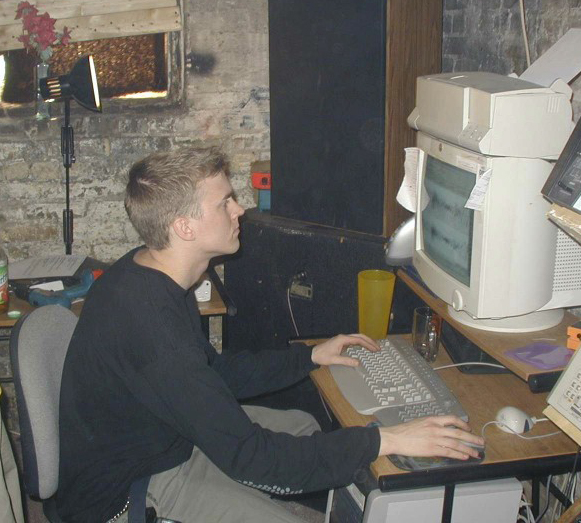
As an agile coach and trainer, I have had the opportunity to reach thousands of students that are just beginning their journey into the Scrum and agile world. Throughout the years, I was repeatedly asked by students how they can get a job being a Scrum Master or agile coach. The question has caused me to think back to how I got here in the first place. I could never have predicted I would be doing what I am today ten years ago.
The early days
My first experience with the agile world was back when I was a developer while finishing up an MBA attending classes at night. I started a new job as a developer at an investment bank that was supporting the Capital Markets business unit. The company had recently made a large investment to improve the entire IT department and I was part of the Application Development team. We started with whiteboards and spreadsheets which I found perplexing. I thought to myself, ‘Why use a whiteboard when we have computer tracking tools?’ Despite hearing, “This is the way it’s always been done,” it did not stop me from asking questions relentlessly to get to the root of why things were conducted the way they were.
I began seriously considering new career paths that would leverage my education and experience. So one day in a one-on-one meeting, I asked my manager how I could contribute in a way that complimented my learnings. It was at this moment, he introduced me to Scrum and sent me to my first Scrum class.
My first Scrum training
I have vivid memories of my very first Scrum training class. The training took place at a hotel located in a suburb outside of Milwaukee that offered a continental breakfast spread before the start of class. I remember also appreciating how we could place our sandwich orders for lunch in the dark wood modernly renovated hotel. Sitting at a roundtable with my team of novice Scrum Masters, we were immediately engaged in group activities that included Legos and paper mache. I admit I don’t remember much of the class except for the fact that I was convinced I could never be up there training a Scrum class for two full days. It seemed utterly intimidating. Looking back it’s super ironic given I teach Scrum now for a living.
After receiving my Professional Scrum Master certification, I went back to work convinced I could change the world one Scrum team at a time. To my dismay, I came back to a team that had very limited knowledge of Scrum and was not ready for my tenacity and passion. I quickly learned that my team had become accustomed to the elements of Kanban, and Scrum was a very foreign concept that no one seemed to want any part of. This forced me to research and learn all that I could about Kanban in order to be the best Scrum Master in a Kanban shop. One of the most valuable skills I learned was how to influence without authority, which is great because I had no authority whatsoever. At this point in time, I was still accustomed to a traditional management structure in which the manager made all the decisions and subordinates had no choice but to simply accept the decisions made. I figured if I just had some authority to make decisions and get people to do what I asked, I could get so much farther getting teams to adopt agile development practices.
The Search for the perfect job
I began looking for a new position soon after earning my MBA that would enable me to integrate all that I have learned from my MBA program and Scrum training. I eventually landed an interview with a Milwaukee-based consultancy for a product owner and development lead position in Chicago. After some discussion, one of my interviewers suggested I might be better suited for another role they had been trying to fill with some difficulty and eventually stopped posting. The position was for an agile consultant. They were looking for someone that had strong client-facing technical, business, and presentation skills. This person for them was hard to find until they met me. I didn’t realize what was happening as they quickly shifted the interview around and had me speak with the head of the agile department. Things escalated quickly and in the end, I was offered the position in which I accepted my new role as a professional agile consultant and trainer.
I basically fell into this career. I couldn’t have planned it. Little did I know, I had been preparing for the role of a lifetime for a decade when I founded Responsive Advisors, a management consulting firm dedicated to helping organizations create a sustainable culture that is change responsive. All that I learned in college coupled with my work experience helped me become the perfect candidate for a role in transforming organizations that had difficulty adapting quickly into highly performant agile machines. To this day, I love my job and remain passionate about getting better so I can help my clients get better.
Ready for anything
Since I could never have planned this path it’s hard for me to tell others how to get there too. I can tell you what I did, but that might not be what works for you. I can only suggest that you stay sharp, keep practicing, stay hungry, take chances, and one day the right opportunity will present itself and you will be well prepared to identify it and take advantage of it. A great place to start is with Jordan Job’s A Scrum Master’s reading list to gain as much knowledge about this exciting profession. A favorite quote of mine by Louis Pasteur can be boiled down to, “chance favors the prepared mind” and thus, I always stay prepared for a chance.
